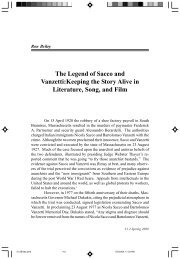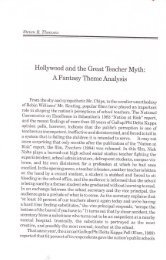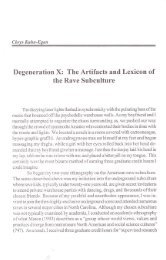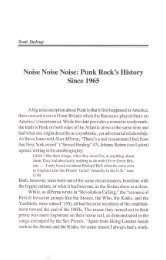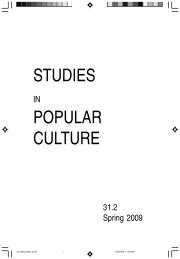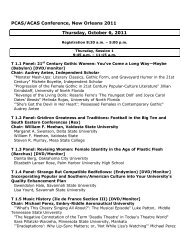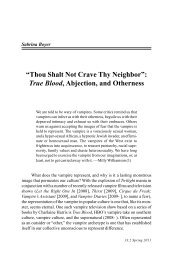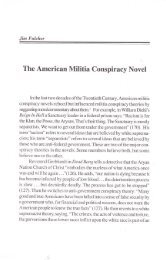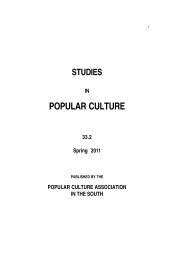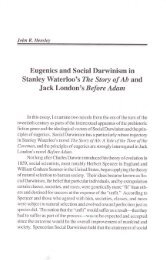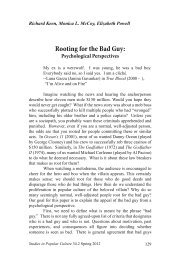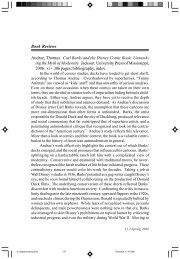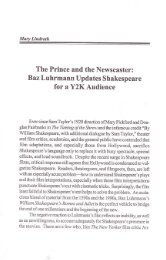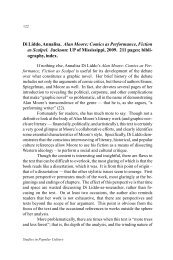'Sigmund Freud, Analyze This': How Madonna Situates - Popular ...
'Sigmund Freud, Analyze This': How Madonna Situates - Popular ...
'Sigmund Freud, Analyze This': How Madonna Situates - Popular ...
Create successful ePaper yourself
Turn your PDF publications into a flip-book with our unique Google optimized e-Paper software.
80 David Sigler<br />
is often read as the first text of the last phase of <strong>Freud</strong>’s career: texts as<br />
central as The Ego and The Id, Civilization and its Discontents, and Group<br />
Psychology follow from the premises introduced here. Partly because of<br />
its stock of shocking new concepts and its strange habit of undermining its<br />
own diabolical arguments as it presents them, Beyond is commonly numbered<br />
among <strong>Freud</strong>’s most difficult texts.<br />
The speculations of Beyond the Pleasure Principle populate<br />
<strong>Madonna</strong>’s song to a remarkable extent, and these carry with them significant<br />
effects—even forcing us to reconsider what it might mean to “die<br />
another day.” Die Another Day, like all Bond films, is an action picture<br />
about espionage kept as courteous as possible in the face of international<br />
skullduggery. Unlike many Bond films, though, the British intelligence<br />
community has here been undermined from within: this time Bond has<br />
been betrayed by a mole, suspended and disavowed by his employers,<br />
and now he needs to act (mostly) alone to solve the horrifying mystery of<br />
Colonel Tan-Sun Moon’s weapons-for-diamonds scheme. 3 At its most<br />
literal level, the title of the film refers to the physical transformation and<br />
persistence of Colonel Moon, who has somehow survived his first brush<br />
with Bond only to reappear, genetically altered, as the evil megalomaniac<br />
Gustav Graves. 4 Bond jests upon encountering his transformed nemesis<br />
that Graves is finally ready to “die another day.” But viewers of the film<br />
will sense as well that its title is also supposed to refer to James Bond’s<br />
own fortitude and indestructibility: the title is a testament both to James<br />
Bond’s wily charm and the character’s enduring public appeal. We sense<br />
this because Die Another Day, even more than other Bond films, demands<br />
to be read as either an homage to the venerable film franchise or a<br />
postmodern exploitation of its signal motifs. The imagery and dialogue of<br />
the film are filled with winking references to nearly every preceding film in<br />
the series, suggesting that Bond himself—both in the plot of the film and in<br />
twenty-first century culture—will not die until another day.<br />
<strong>Madonna</strong>’s song attempts none of these self-congratulatory gestures,<br />
and instead infuses the titular phrase with a whole range of new and specifically<br />
<strong>Freud</strong>ian meanings: its “Die Another Day” is not a matter of en-<br />
Studies in <strong>Popular</strong> Culture



